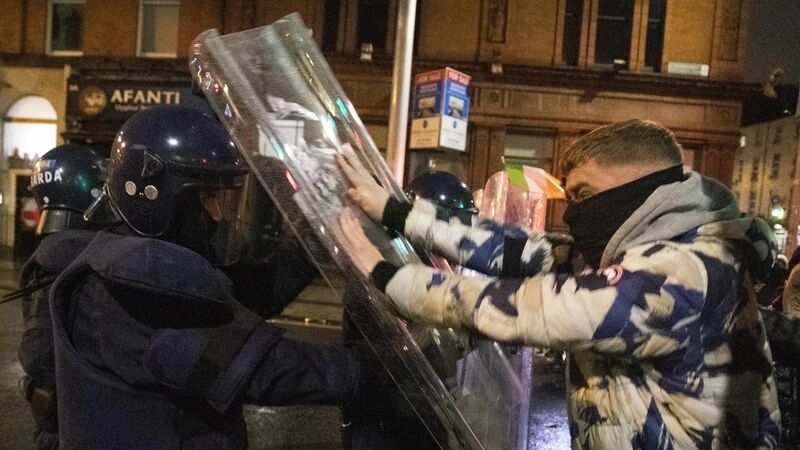Mick Clifford: Hate speech bill in danger of failing due to noise around relatively minor element

Last year's riots in Dublin. In 2022 there was a 29% increase in hate crimes up to a total of 582 incidents. These included public order incidents, assaults causing harm and criminal damage. File picture: Colin Keegan, Collins Dublin
The name of the Facebook page was ‘Promote the use of knacker babies as shark bait”. On the page there was a reference to suggest that Traveller babies could be useful at “feeding time in the zoo”. There was also a phrase suggesting Travellers could be used for testing new drugs in viruses.
The man responsible for the postings was prosecuted in Killarney district court under the 1989 Incitement to Hatred Act. He was a barman who created the page after he had a bad experience with a group of Travellers in his workplace. Garda Stephen Hourigan, who received a complaint about the posting and interviewed the man responsible, told the court he thought it was outrageous.













